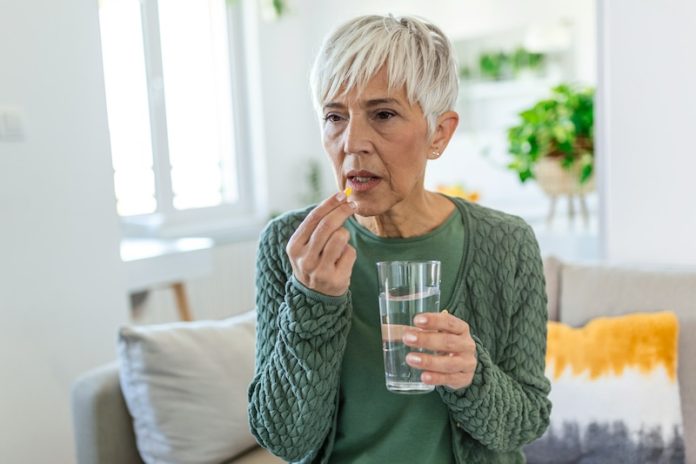
In 2022, University of Colorado Department of Medicine faculty member Dr. Neda Rasouli, along with a national team of researchers, compared the effectiveness of four common medications for type 2 diabetes.
Their study aimed to determine which medication might be superior. Recently, they published more detailed analyses in 10 articles in Diabetes Care, providing deeper insights into the medications: insulin glargine, liraglutide, glimepiride, and sitagliptin.
This research was part of the Glycemia Reduction Approaches in Diabetes: A Comparative Effectiveness (GRADE) Study, a nationwide clinical trial conducted from 2013 to 2021.
The study involved over 5,000 participants at 36 clinical centers across the United States, including the CU Anschutz Medical Campus. Dr. Rasouli led the investigation at the CU site, which included the Rocky Mountain Regional Veterans Affairs Medical Center.
Dr. Rasouli emphasized the importance of finding the best medication for type 2 diabetes due to the increasing prevalence of obesity and diabetes. She noted that cost differences among these medications necessitate a closer look to determine if one is clearly better than the others.
The Need for the GRADE Study
More than 38 million people in the U.S. have diabetes, with 90-95% having type 2 diabetes. This condition occurs when the pancreas doesn’t produce enough insulin or the body’s cells don’t respond to insulin properly, leading to high blood sugar levels.
Maintaining near-normal blood sugar levels, or glycemic control, is crucial to reduce the risk of complications like heart disease and kidney disease. However, glycemic control can be challenging.
“Type 2 diabetes is progressive, meaning blood sugar control worsens over time due to beta cell dysfunction,” explained Dr. Rasouli. Patients are typically prescribed metformin to help lower blood sugar levels, but many eventually need additional medications.
The GRADE study aimed to compare four medications used alongside metformin to determine which best improved glycemic control.
The 2022 results, published in the New England Journal of Medicine, showed that liraglutide and insulin glargine, when combined with metformin, were more effective in maintaining target blood glucose levels compared to glimepiride and sitagliptin.
Insights into Beta Cell Function
Following the initial results, the researchers continued to analyze their data, resulting in 10 additional articles. Dr. Rasouli was the first author of one such article, which examined the long-term effects of the four medications on insulin sensitivity and beta cell function.
Beta cell function, which declines by 5-10% per year, is crucial for maintaining blood glucose control.
The study found that liraglutide significantly improved beta cell function in the first year but saw a rapid decline thereafter.
At the end of the study, liraglutide had the best beta cell function compared to sitagliptin, insulin glargine, and glimepiride. However, none of the medications could halt the loss of beta cell function entirely.
Choosing the Best Medication
There is no one-size-fits-all solution, according to Dr. Rasouli. The GRADE study provides valuable information to help healthcare providers tailor treatments to individual patients.
Surprisingly, the study showed that insulin glargine could be a safe and effective second-line therapy for type 2 diabetes, despite traditionally being a last resort.
Insulin glargine was effective in maintaining glycemic control and did not pose the highest risk of hypoglycemia (low blood sugar), though it did cause some weight gain.
Liraglutide, a glucagon-like peptide-1 (GLP-1) receptor agonist, not only improved glycemic control but also promoted weight loss and did not increase hypoglycemia risk unless combined with another medication.
Considering glycemic control, weight, and hypoglycemia, liraglutide performed better than insulin but is more expensive. GLP-1 receptor agonists, including Ozempic, Trulicity, and Mounjaro, are among the most costly diabetes medications.
“In an ideal world where cost isn’t a factor, GLP-1 would likely be the preferred choice for many,” Dr. Rasouli noted.
Continuing the Research
The GRADE study’s findings highlight the need for interventions that preserve beta cell function long-term.
Dr. Rasouli leads the CU Diabetes and Endocrinology Clinical Trial Program, aiming to bring innovative treatments for diabetes and related conditions to patients. She hopes the study emphasizes the importance of early, intensive, and personalized therapy for type 2 diabetes.
“We need to ensure patients maintain their glycemic targets to prevent future complications,” Dr. Rasouli said. “Once complications arise, reversing the course is impossible. Aggressively addressing type 2 diabetes from the start is the key takeaway from GRADE.”
If you care about diabetes, please read studies about a cure for type 2 diabetes, and these vegetables could protect against kidney damage in diabetes.
For more information about diabetes, please see recent studies about bone drug that could lower risk of type 2 diabetes, and results showing eating more eggs linked to higher risk of type 2 diabetes.
The research findings can be found in Diabetes Care.
Copyright © 2024 Knowridge Science Report. All rights reserved.



